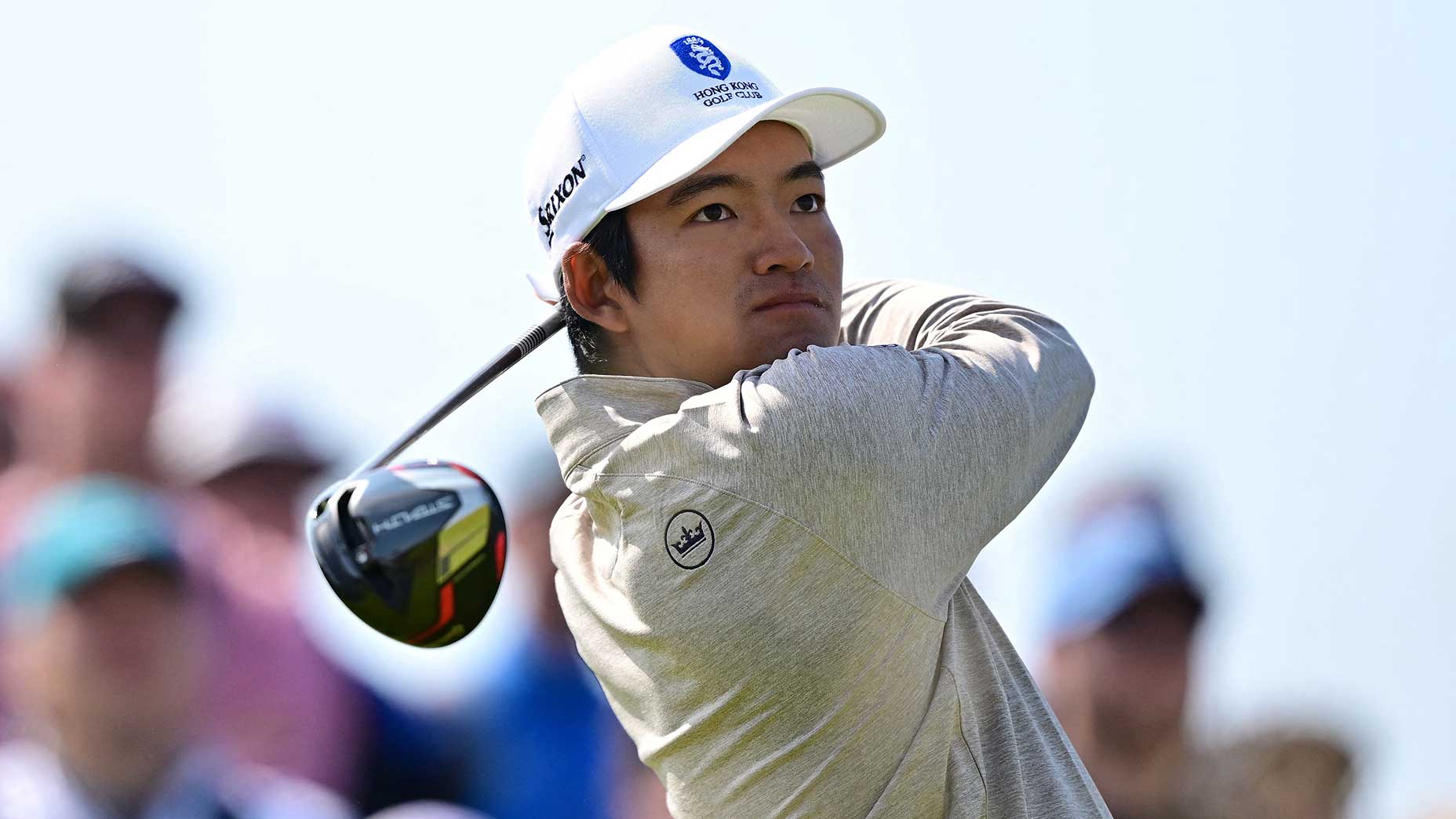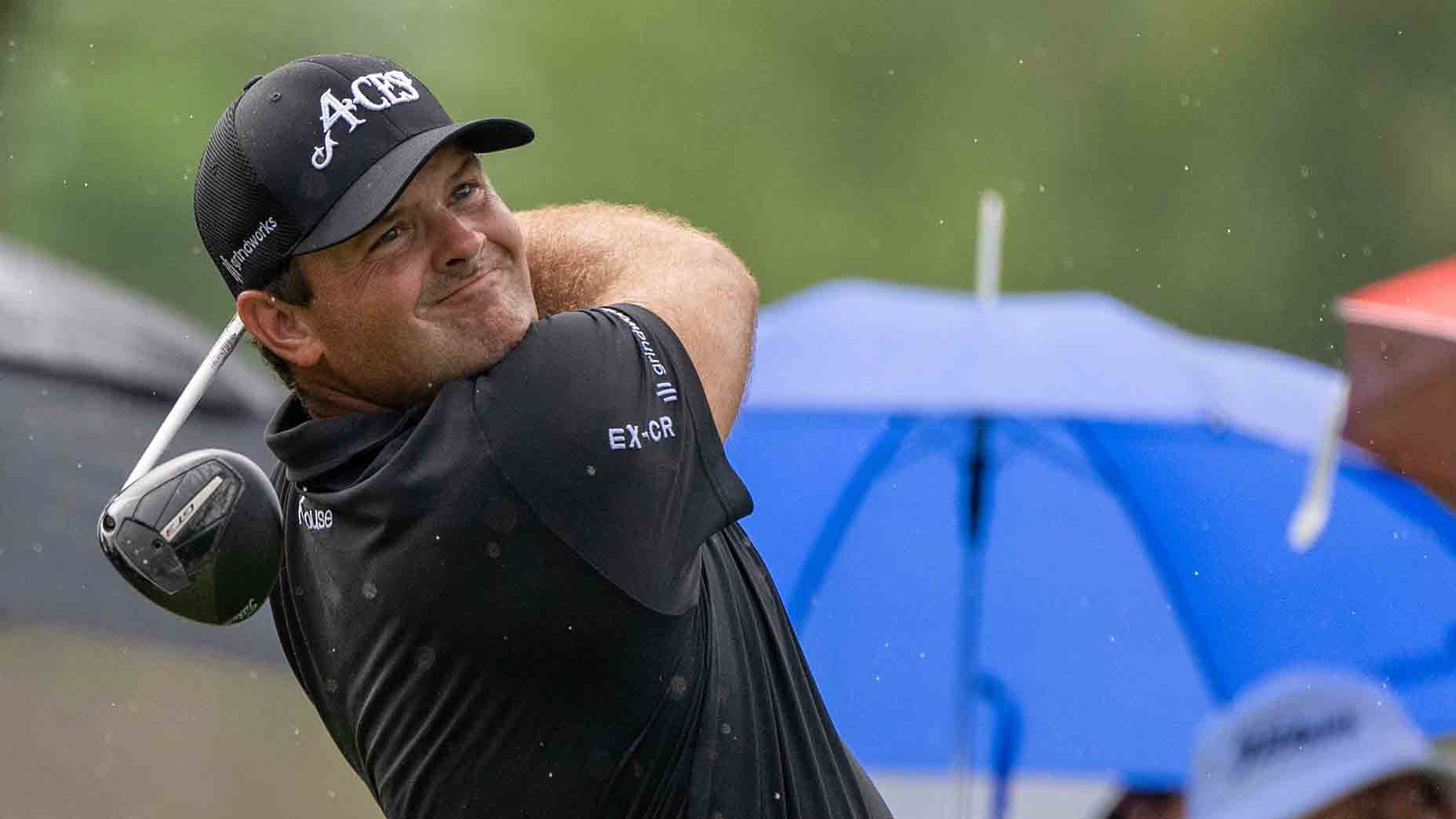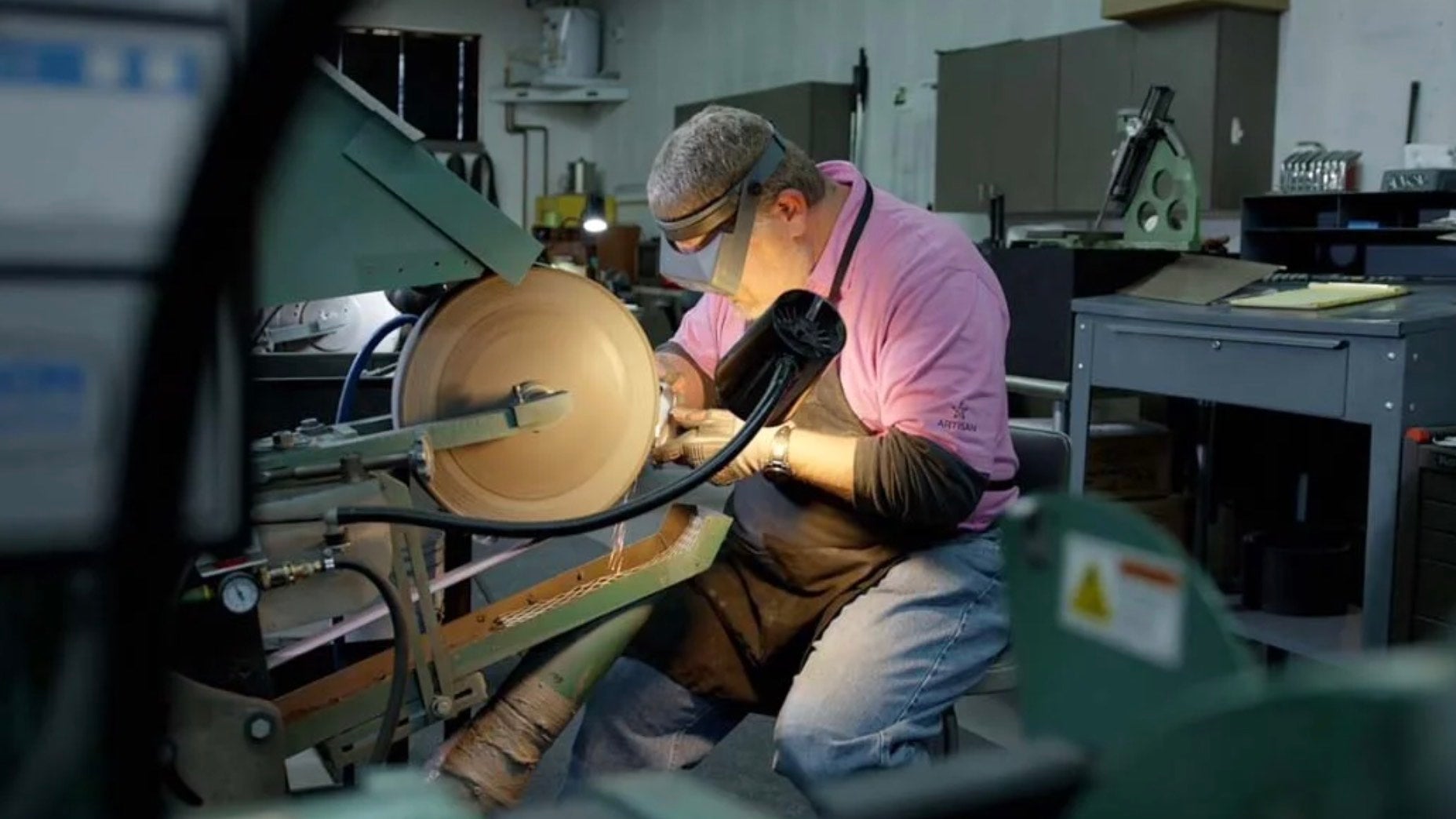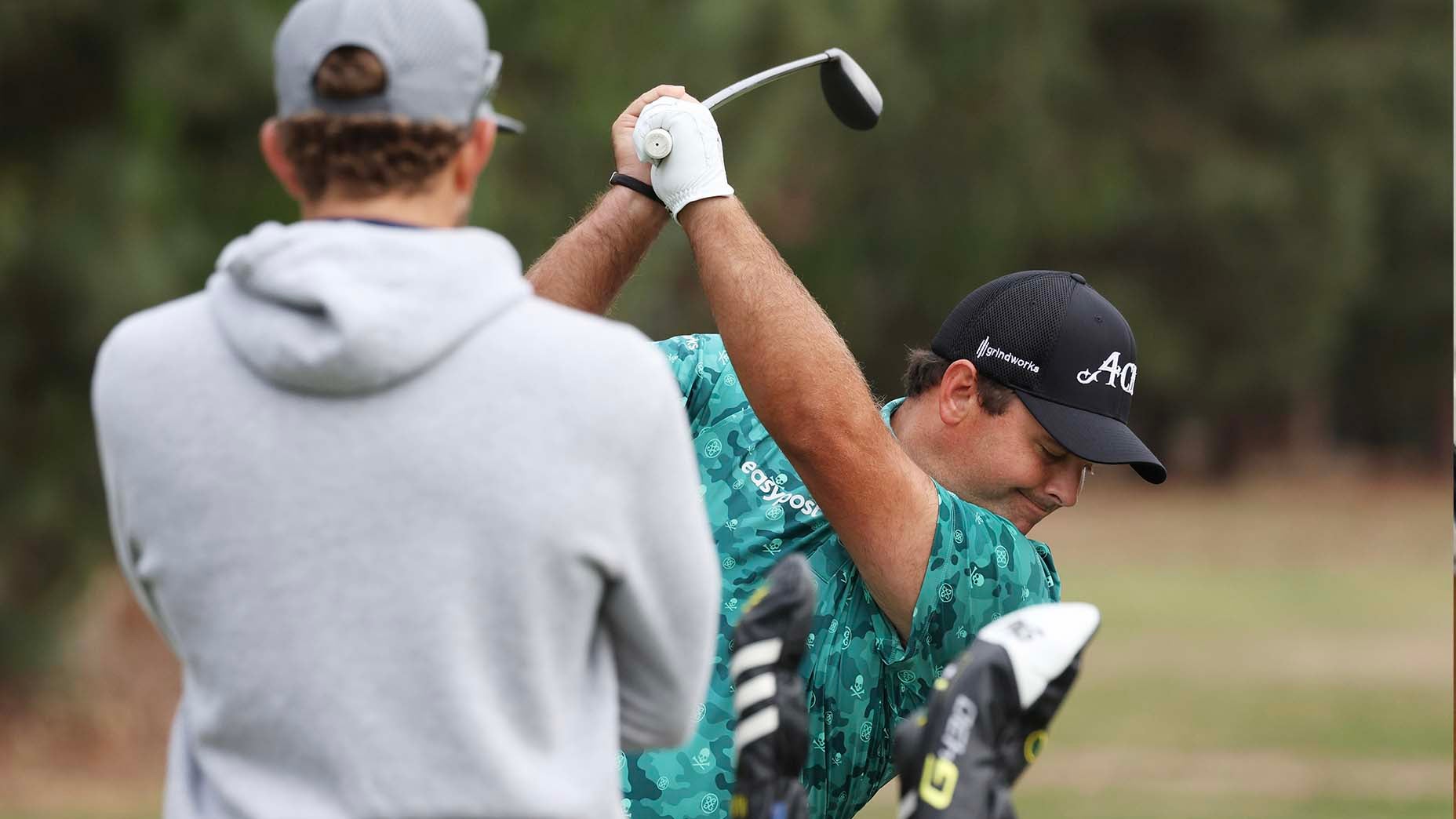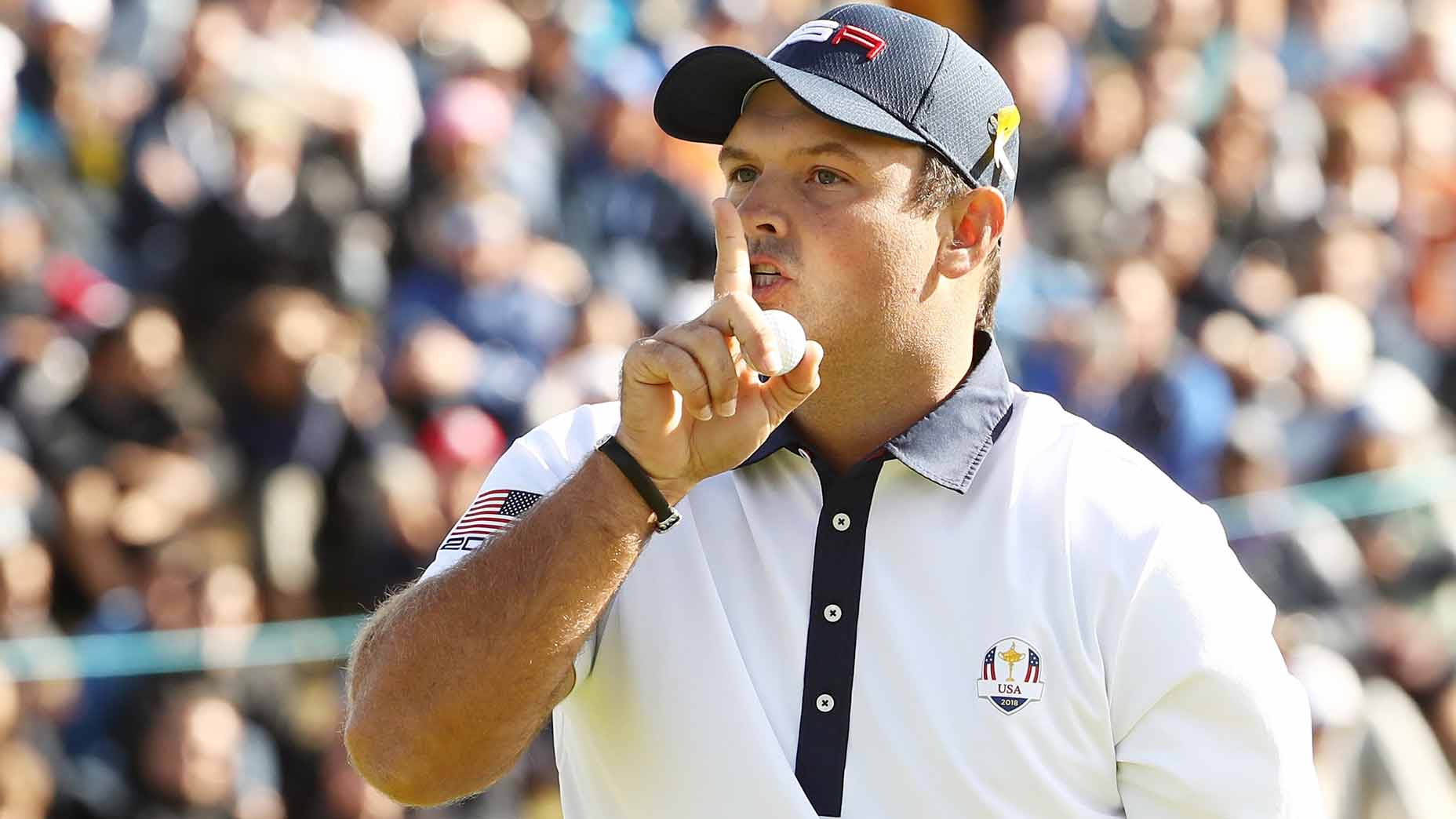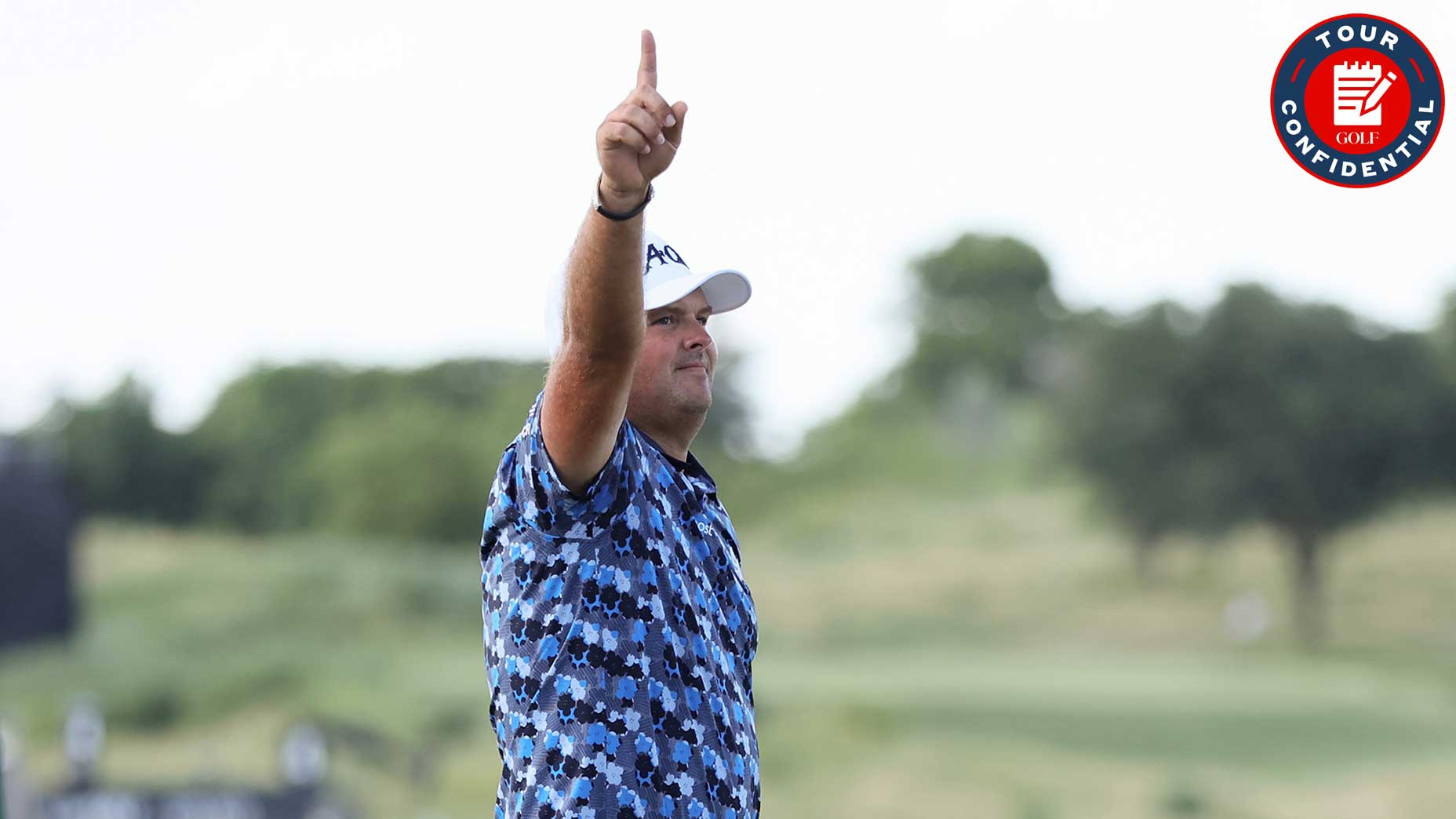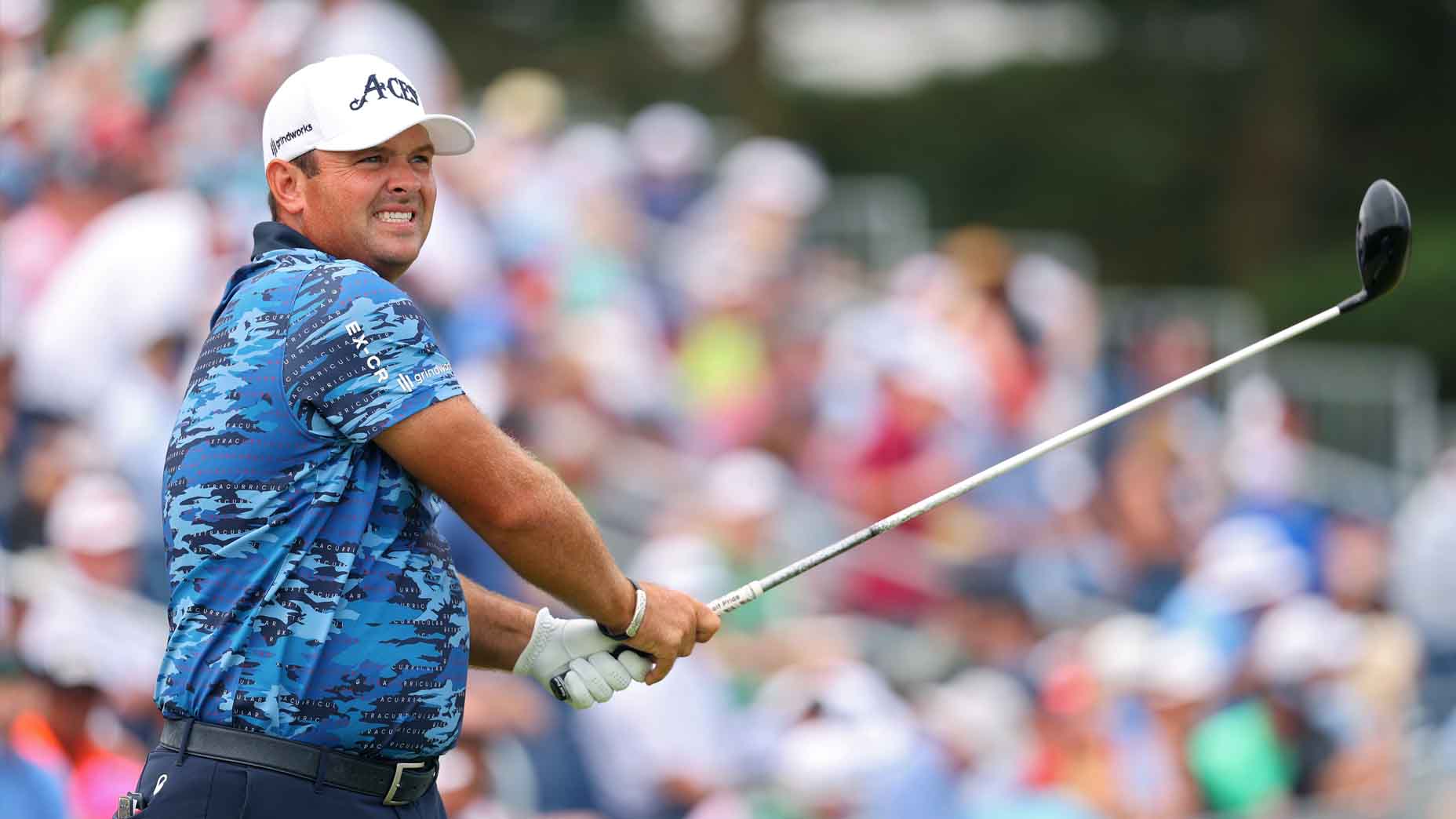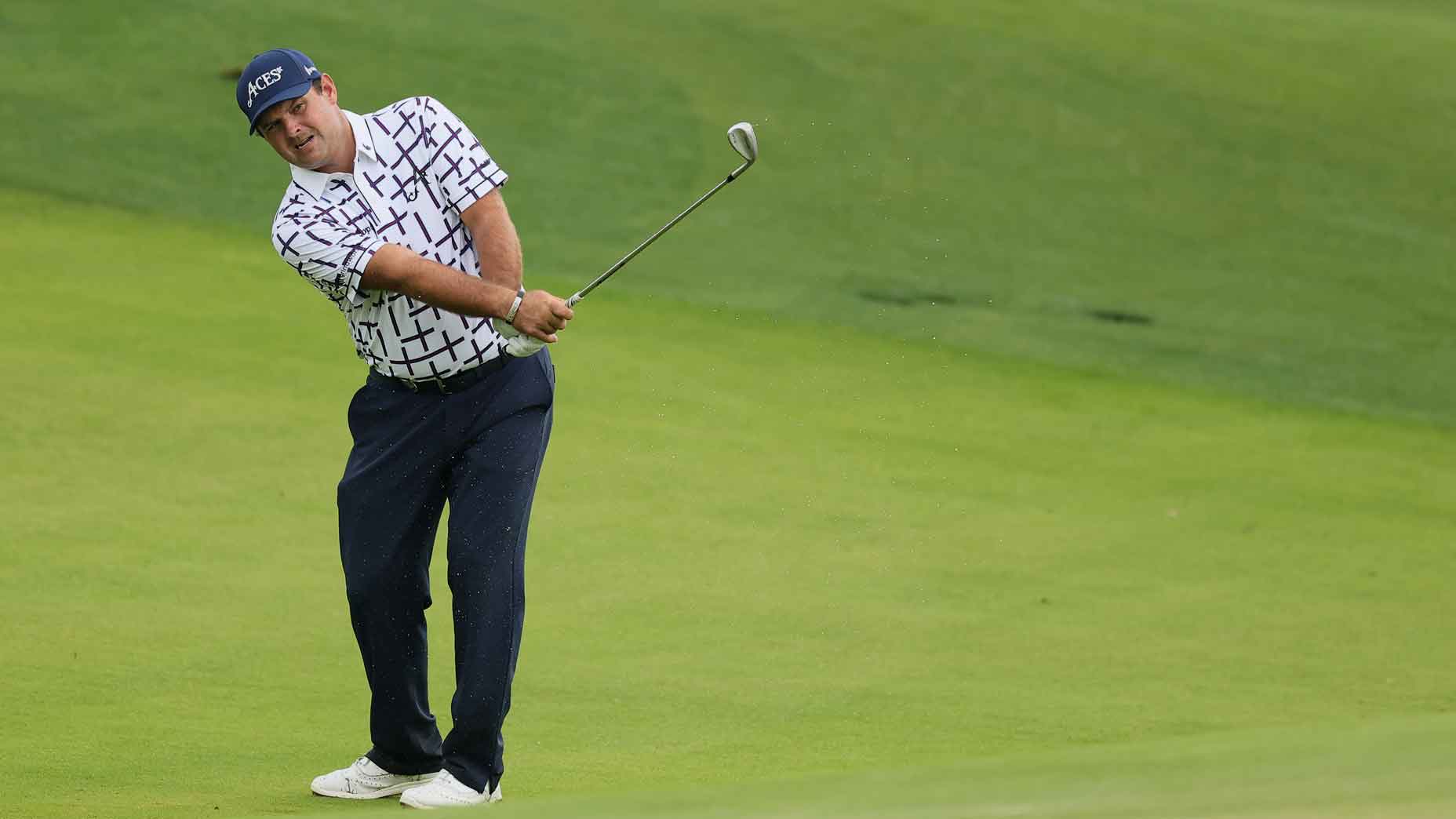HOYLAKE, England — The question sounded rhetorical, but rest assured Patrick Reed meant every word of it.
“I don’t know anything about the merger,” he told a reporter on Thursday afternoon at Royal Liverpool.
Then he paused for a beat.
“Do you?”
It had been a lengthy media scrum, by Reed or any other player’s standards, but once Reed began talking it became obvious he would have no choice but to speak for a little bit longer. Over the next five or so minutes, the former Masters champion treated the handful of reporters in attendance to one of his most candid interviews in recent memory, going deep on the profoundly strange condition of being a professional golfer in the wake of the landmark agreement between the PGA Tour and Saudi Public Investment Fund.
“For me it’s hard to really know,” he said. “You hear one day it’s a merger, the next day you hear it’s not a merger, the next day you hear it’s a collaboration, then you hear everyone is working in parallel, then you hear this ends the lawsuits.”
As Reed spoke, you could sense an earnestness in his voice. He wanted to know, in no uncertain terms, what the hell was going on. For this, you couldn’t blame him.
“That’s the thing,” he said. “It’s hard to feel happy or upset about any of it, because we don’t know what it is.”
It has been a summer of unknowns for Reed, who arrived at the Open Championship on Thursday morning facing another type of grim golf limbo: his major championship exemptions are about to lapse. Worse yet, the sands of time — and his steadily declining world ranking — have cast him to the fringes of future eligibility, too.
The good news is that things aren’t as bad as they seem. Recent developments in the golf landscape have opened the possibility that Reed, an early LIV defector, will be able to return to the DP World Tour and PGA Tour in the near future, granting him the freedom to once again earn his spot into the majors via the Official World Golf Ranking.
The bad news is that nobody knows a thing about what it all means. Not the sport’s stakeholders, not the agents, not the players, and certainly not Reed.
“None of us know anything,” he said. “I saw the hearing and I saw the CNBC first [interview] — that’s all I’ve seen.”
Reed said he was particularly uninterested in last week’s U.S. Senate subcommittee hearing on the merger, where senators grilled PGA Tour chief operating officer Ron Price and policy board member Jimmy Dunne.
“I watched some of it,” he said. “To sit there and think that you’re going to have a hearing about a sport, about golf, is just like — it’s a little much.”
Some of that apathy came from the political nature of the hearing, he said, but most of it came from the people who were summoned to talk about it.
“Let’s be honest, if there’s a hearing like that you would expect the top three guys to be there,” Reed said. “You would expect [PGA Tour commissioner Jay Monahan], you would expect [DP World Tour commissioner Keith Pelley] and [Saudi Public Investment Fund managing director Yasir Al-Rumayyan]. You would expect those three guys. That’s who you want to hear in the hearing. Jimmy Dunne and, who was the other guy? I mean, okay, cool. I’ve talked to Jimmy Dunne a thousand times. He’s been a part of the Tour for a very short period of time.”
Patrick Reed chuckles as he says he was fined by the DP World Tour the morning after the PIF/PGA Tour merger was announced.
— James Colgan (@jamescolgan26) July 20, 2023
“Great merger, huh?” pic.twitter.com/ZP3AmDEX0b
It was striking to hear Reed speak so earnestly about the shifting state of affairs in the sport if only because it was striking to hear him speak at all. Over the years he has maintained what one could charitably call an uneasy relationship with the golf media; a relationship that extends well beyond his polite (if guarded) public persona. In just the last few years, his attorney has filed lawsuits against a number of perceived offenders on his behalf, including Golf Channel analyst Brandel Chamblee, and has threatened litigation against many more. On one occasion, his official social media account posted an all-caps reply blasting Rory McIlroy for what the poster perceived as favorable treatment from the golf media.
But these are unprecedented times in golf, when it feels as if the future of the three largest professional tours hangs in the balance of a multi-billion-dollar arrangement. It is not a stretch to say the future of Reed’s career also hangs in the balance. He has been suspended indefinitely by the PGA Tour and DP World Tour, the latter of with which he retains lifetime membership, but it’s possible a merger could bring about the possibility of an open pathway among the three tours. For Reed, a grinder who has averaged around 30 events annually, that could change everything.
“I have played every event on LIV and I would have played the minimum on the European Tour,” he said, indicating he would happily retain — and use — membership on all three tours. “They said no one can play all three. Well, I did it. Shocker.”
In the meantime, though, it seems we’re still a long way from that reality. Even if litigation between the tours has ceased as a result of the proposed merger, player punishment has not.
“When I heard about this merger, the next morning I get an email from Keith Waters and Keith Pelley suspending me through Scottish and fining me some more,” Reed said with a low chuckle, speaking of the DP World Tour’s chief operating officer and chief executive officer, respectively. “Great merger, right? Still getting suspended and fined.”
Pro makes 10 after pot-bunker disaster at Open ChampionshipBy: Josh Berhow
Complete and total autonomy is one of the fundamental beliefs of the sport’s professional wing. It’s why so many players left for LIV, and why so many more skewered the PGA Tour for introducing a playing requirement for its designated events series. Golfers believe they are independent contractors, which means they have the right to choose their own destiny.
But there’s an irony in what the search for autonomy has brought to the men’s professional game, not only for Reed but also for all tour pros. Just as easily as the agreement between the PGA Tour and the PIF could engender a new era of schedule harmony for players, it could also lead to the end of one or more of the major professional tours. As one of LIV’s early defections, Reed was one of the architects of the destabilization that led to this moment. Now, in one of the most significant moments for the sport, he has no such control.
He seemed to realize that as he spoke with media on Thursday at the Open, the last major before an agreement is either finalized or scrapped. As he looked at the small group of reporters standing beneath the lectern, he asked his question again, this time a little more nicely.
“Until we actually know exactly what the merger, collaboration, whatever it is, means, there’s not really anything — you can’t really be upset or happy about it because there is no information,” he said, grinning. “Now, if anyone has that information I’d love to [hear it], so I can let you know if I’m happy or upset about it.”
The assembled media laughed as Reed said that last part, but not for long.
Everyone had more questions, but no one seems to have any answers.

